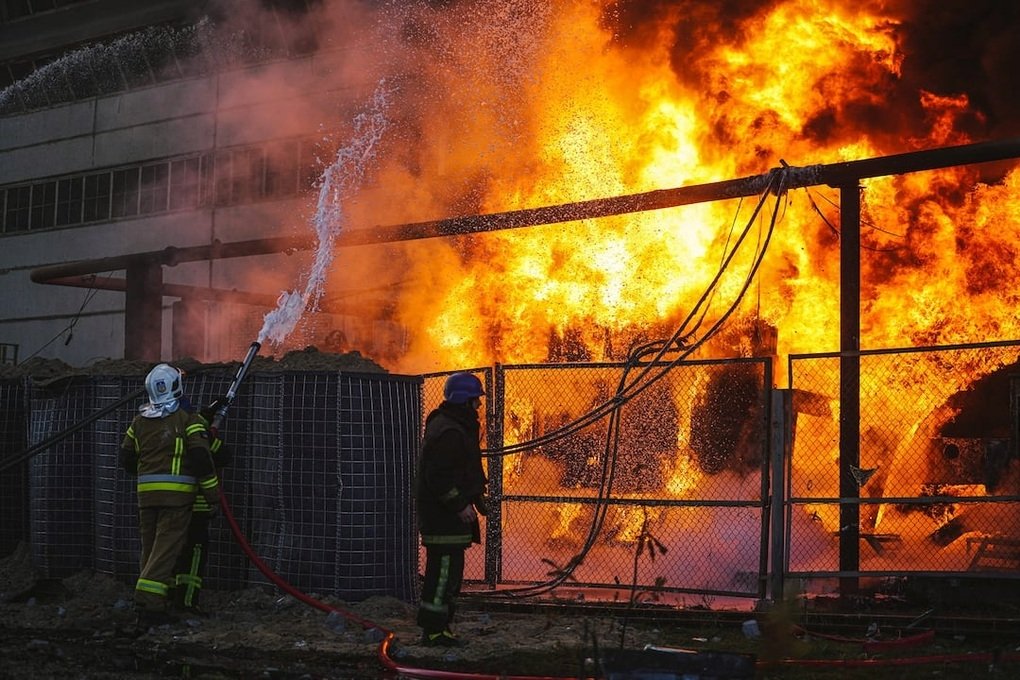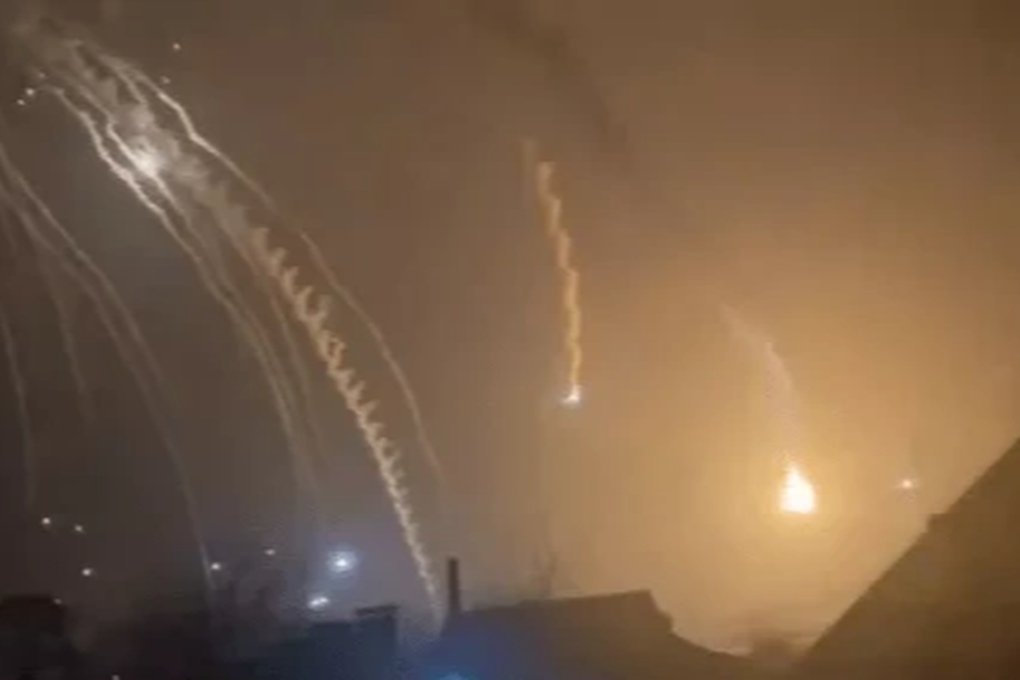
Russia preparing for major military operations in Ukraine this summer? 0
(Dan Tri) – Recently, Russia’s large-scale air attacks targeting Ukraine’s energy system seriously affected many territories of the country.
Russia attacked and destroyed a thermal power plant in Kiev, Ukraine (Photo: Reuters).
In retaliation, Ukraine also conducted many raids on Russia’s energy infrastructure, especially many oil refineries, causing such serious damage that Russian Minister of Energy Nikolai Shulginov had to urge further action.
`Repairs at the plants are underway. We plan to restore some refineries in April or May, possibly until early June. All damaged facilities,` he said.
On the contrary, a notable point of the massive air raid conducted by Russia was not aimed at the energy transmission system, but aimed directly at power generation plants.
So what is happening and why did Russia choose to `cut off power` to Ukraine at the present time?
Talking numbers
In the latest statement, Ukraine’s private energy company DTEK announced that Russia’s attack campaign between March 22 and 29 led to serious damage and loss of 80% of generation capacity.
`80% of power generation capacity is no longer operational. Five of the company’s six thermal power plants are severely damaged. The situation is very difficult,` DTEK announced.
DTEK CEO Dmytro Sakharuk complained that most of the damage occurred to facilities that were recently repaired after previous Russian attacks in 2022 and 2023.
`Some factories that were just repaired and reopened 2 months ago were attacked. We rebuilt the roof, installed transformers, repaired turbines and generators. Now everything is gone.`
The damage to the energy system, especially Ukraine’s electricity, during the Russian airstrike was also acknowledged by Mr. Volodymir Kudrytsky, head of Ukraine’s national power grid operating agency Ukrenergo, on April 1.
`Their (Russian) intention is to cause power outages in several major cities of Ukraine and our goal is to prevent that,` Mr. Kudrytskyi confirmed to Reuters news agency.
Rocket attacks also caused significant damage to Ukraine’s largest hydroelectric plant in Zaporizhia, as well as two hydroelectric plants in Kaniv and Dnister.
`The biggest concern today is the status of power generation, system balancing, hydroelectricity and thermal power generation. The scale of damage that DTEK mentioned is clearly extremely large,`
`We are certainly far from a collapse state. Collapse is the uncontrolled collapse of most or the entire power system. This has not happened and will not happen,` Mr. Kudrytsky said.
The Ministry of Energy of Ukraine called for limiting the publication of information about the consequences and targets of recent Russian attacks and widespread power outages have appeared in many areas across the country.
According to Kiev’s assessment, the scale of the attack on Ukraine’s energy sector is much larger than expected.

Russia attacked Ukraine’s capital Kiev (Photo: Telegram).
Signs before a big storm?
Going back in history, Ukraine’s entire energy system today is the result of the electrification process under the Soviet Union.
Huge hydroelectric plants on the Dnieper River or thermal power plants sprang up throughout the Soviet Union, including Ukraine.
Ukraine’s energy system, inherited from the Soviet era, is based on large-capacity hydroelectric plants, which both meet power supply requirements and play a role of load balancing for the entire system.
During the conflict from 2022, with the goal of temporarily disrupting Kiev’s electricity supply.
However, in the raid campaign from March 22 onwards, Russia’s main target was power plants.
When attacking Ukraine’s electricity supply system, Russia did two important things at the same time:
First, all industrial activities need to use electricity, including the defense industry.
This not only affects Ukraine’s ability to produce weapons, but also destroys the West’s intention to deploy some level of weapons factories in Ukraine to prolong the war.
Second, Russia’s attack on Ukraine’s power system seems to signal a new phase in the special military campaign.
This has many similarities with the military operations of the US and NATO before conducting large-scale ground campaigns in Iraq, Libya,… Accordingly, the energy, information, transportation and
So is this a signal for the Russian military to prepare for major military operations in the summer of 2024 as predicted by the West, or are Moscow’s open statements about the possibility of establishing a security buffer zone or `zone`?
In addition, another factor to be considered is that Russia suddenly destroyed the energy system, leaving both Ukraine and allied countries unable to react.
Clearly, the Ukrainian battlefield is like a chessboard with the advantage belonging to Russia and Kiev and its allies having to run to deal with it.






